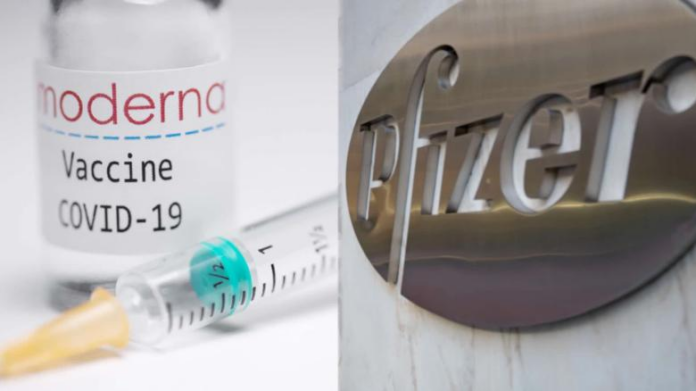Photo Source: CNN
By Grace Hwang
Although COVID-19 cases have been rapidly increasing around the globe, the recent approvals of the Pfizer and Moderna vaccines have offered a rare glimmer of hope. On December 2, the UK became the first country to approve the Pfizer vaccine, and all eyes were on 91-year-old Margaret Keenan, the first to receive one of 4 million doses of the vaccine expected to be dispensed across the UK by the end of the month.
Nine days later, the FDA granted emergency use authorization for the Pfizer vaccine in the US, as record numbers of daily deaths and cases continue to soar each day. With an efficacy of 95%, the approval of the vaccine has provided a sense of relief among healthcare officials and front-line workers. Steve Johnson, regional president of University of Pittsburgh Medical Center Susquehanna, said that the vaccine “creates hope and hopefulness as we’re dealing with a pandemic full of pain and suffering that until recently seemed to have no end in sight”. Houston ICU nurse Robert Luckey, one of the first to receive the vaccine in the region, expressed that “This is honestly the light at the end of the tunnel.”
There still is, however, a reluctance among Americans to receive the vaccine. Although a recent ABC News poll shows that the number of people willing to take it has risen to 80%, 44% have said they would wait. While experts say it is understandable to be hesitant about a new vaccine, Barry Bloom, research professor of public health at Harvard, said, “Your chances of getting sick or dying is much greater going to the grocery store than going to get a vaccine”. The FDA has released a lengthy evaluation confirming the Pfizer vaccine to be highly effective and safe, with only possible mild symptoms arising, such as tiredness and slight pain in the arm afterwards, which are typical of any vaccine. Sandra Lindsey, an ICU nurse in Queens, New York City, the first person in the US to receive the historic shot, later told CNN, “I have no fear. I trust the science.” In addition, many public figures, such as Vice President Mike Pence and Second Lady, along with Senate Majority Leader Mitch McConnell, House Speaker Nancy Pelosi, and Surgeon General Jerome Adams have all received their vaccines on live television, hoping to increase those that are not reluctant when it is time to receive theirs.
50 million Americans are expected to be vaccinated by January and 100 million by February, but with the recent approval of the Moderna vaccine, millions of more doses are expected to be added into the US’s supply, giving drug stores like Walgreens and CVS hope that they will be able to administer vaccines to the general public by March. While the upcoming Christmas holiday will undoubtedly bring upon another surge on the already raging pandemic, these two vaccines hint ahead at a return to normalcy by next year.

